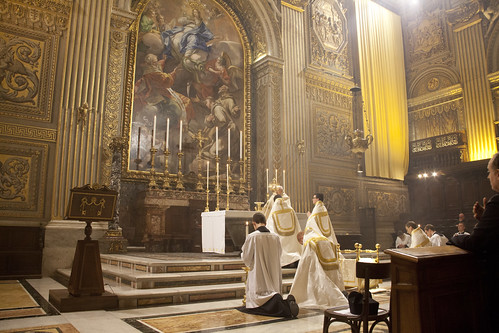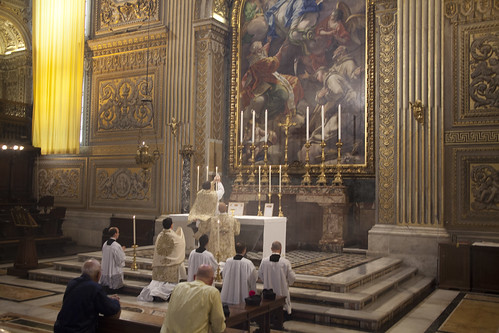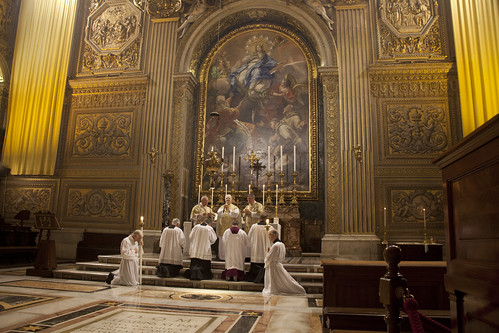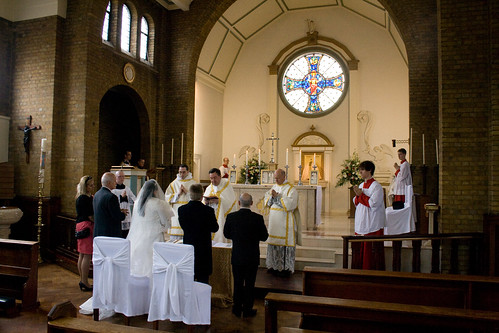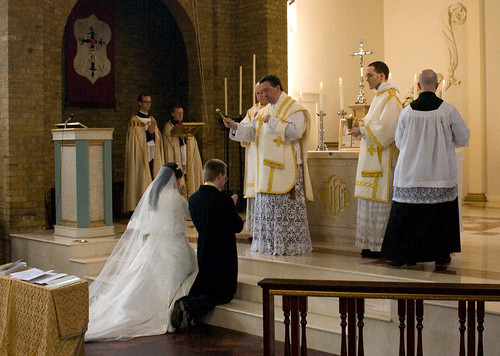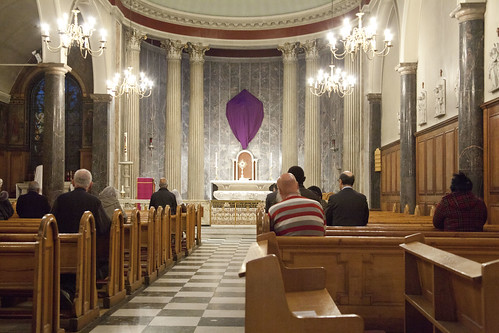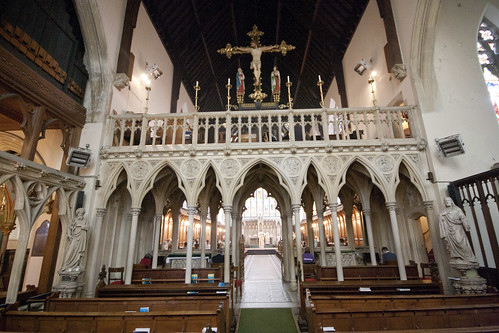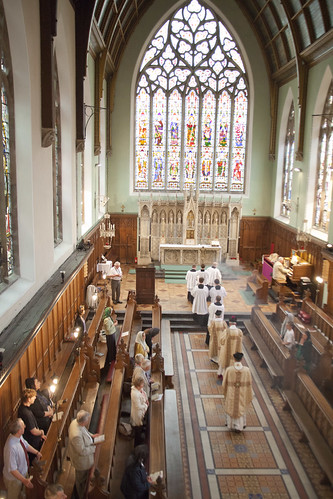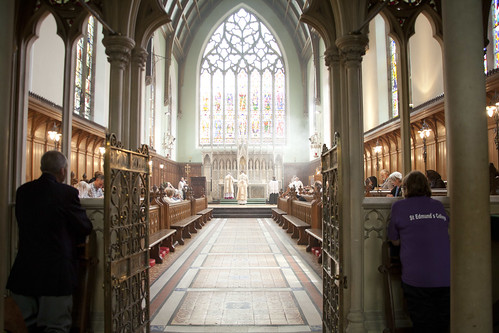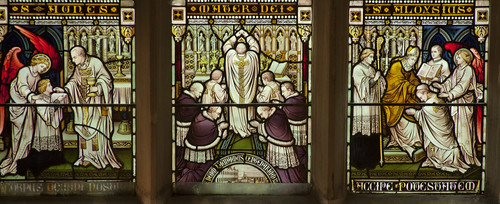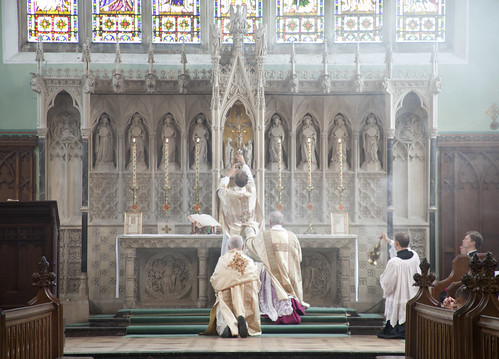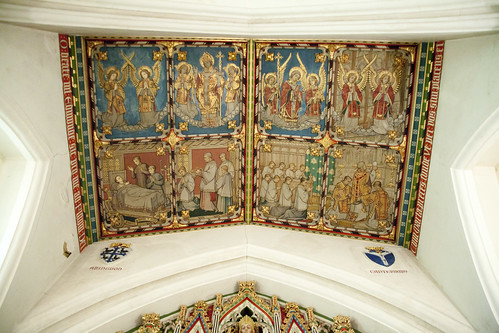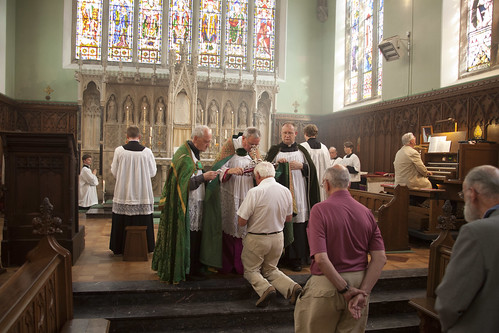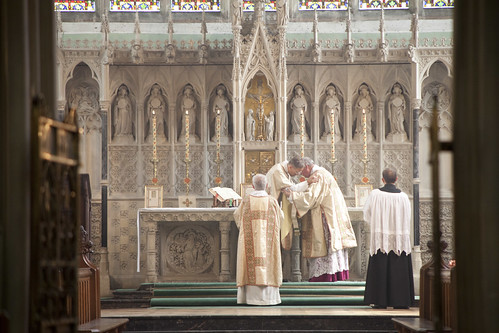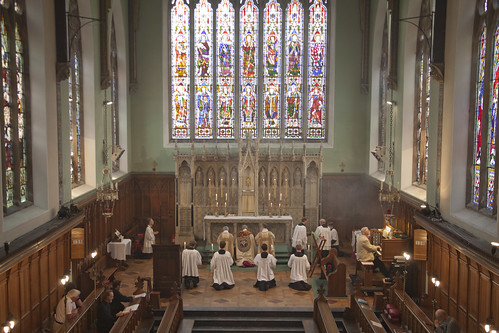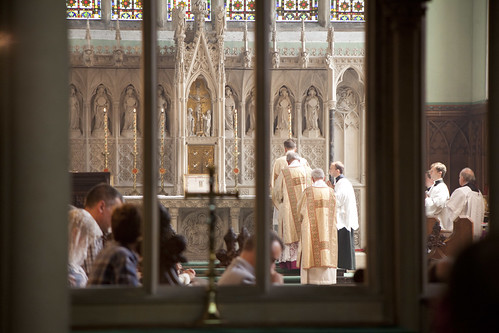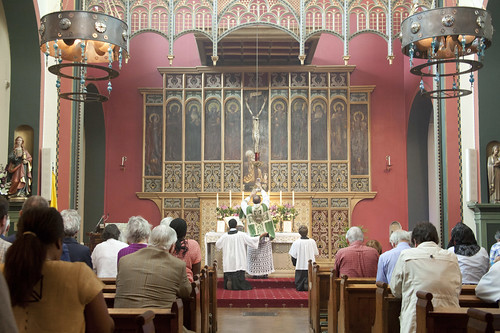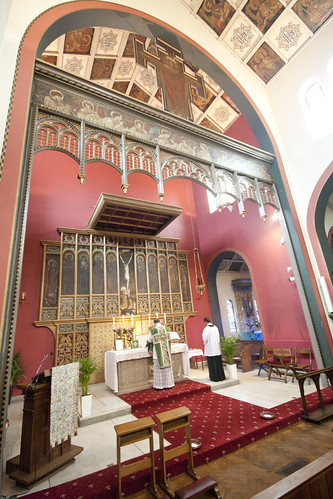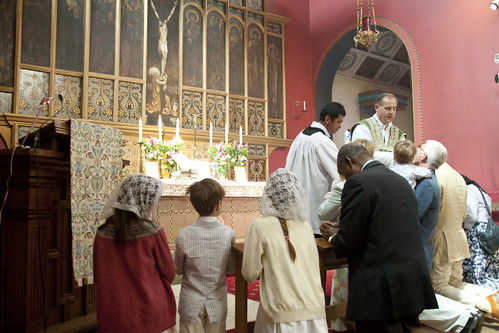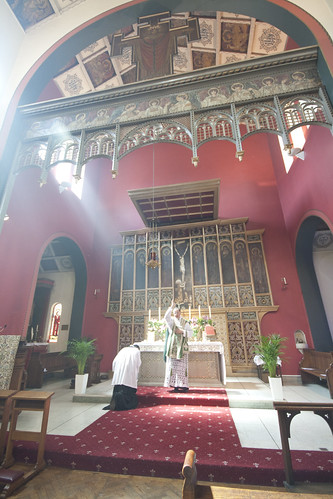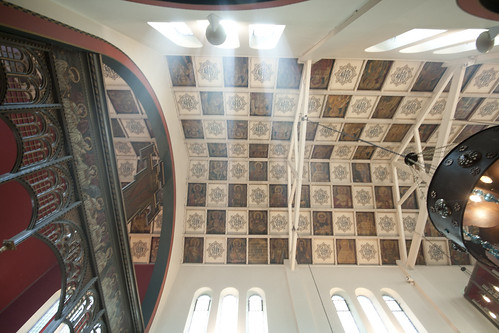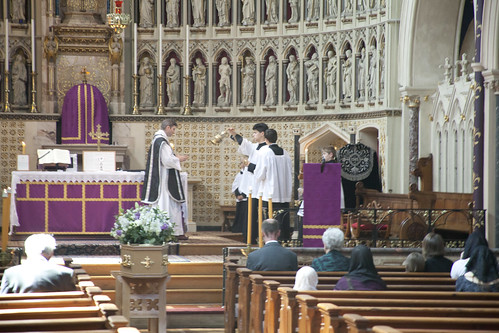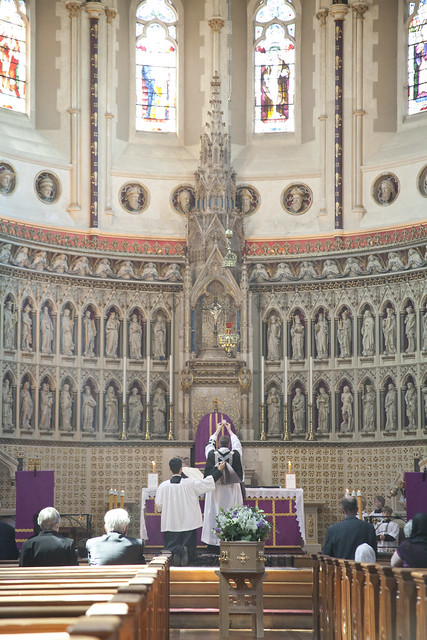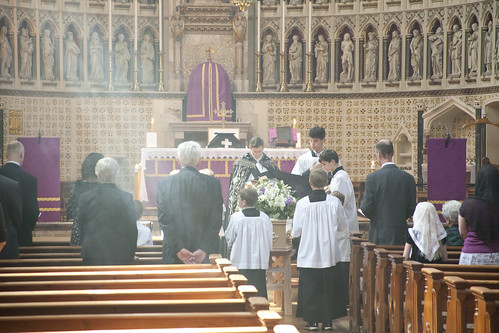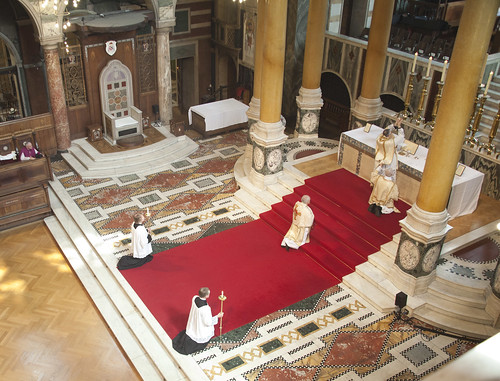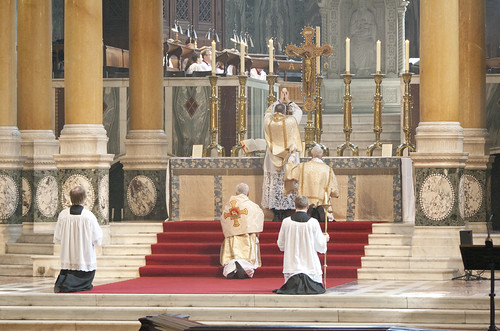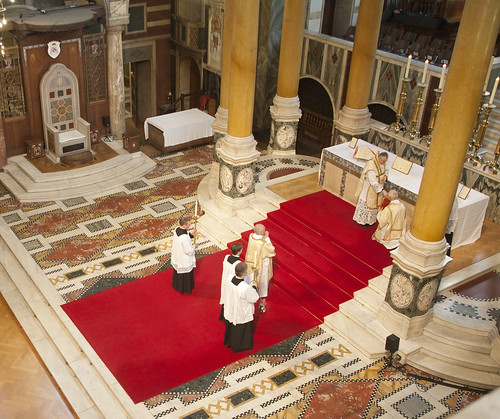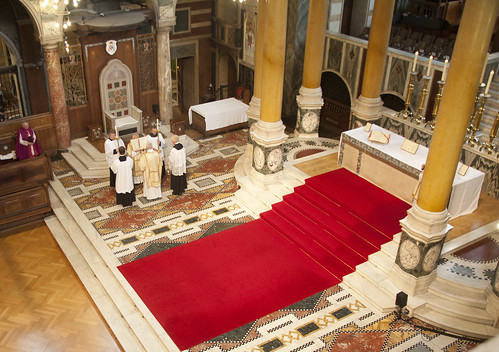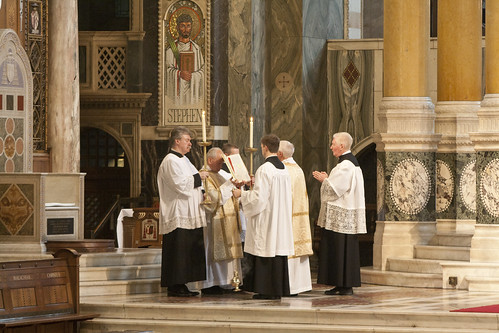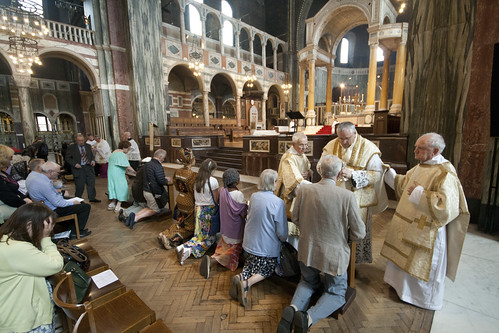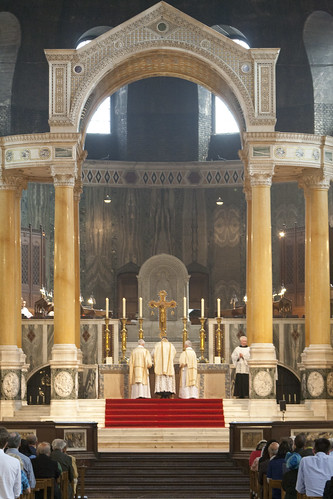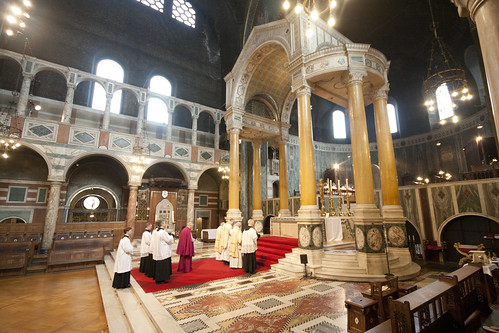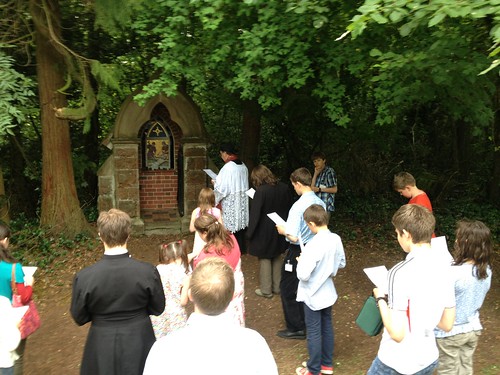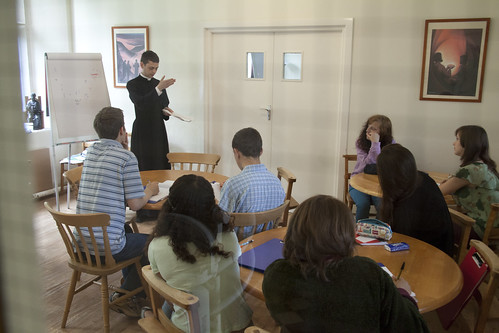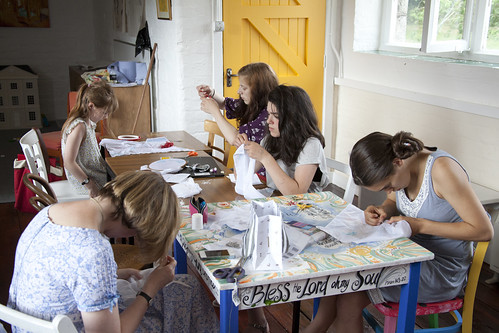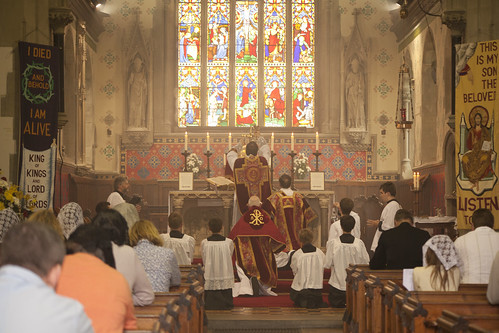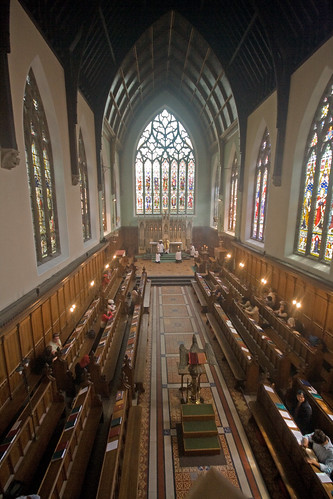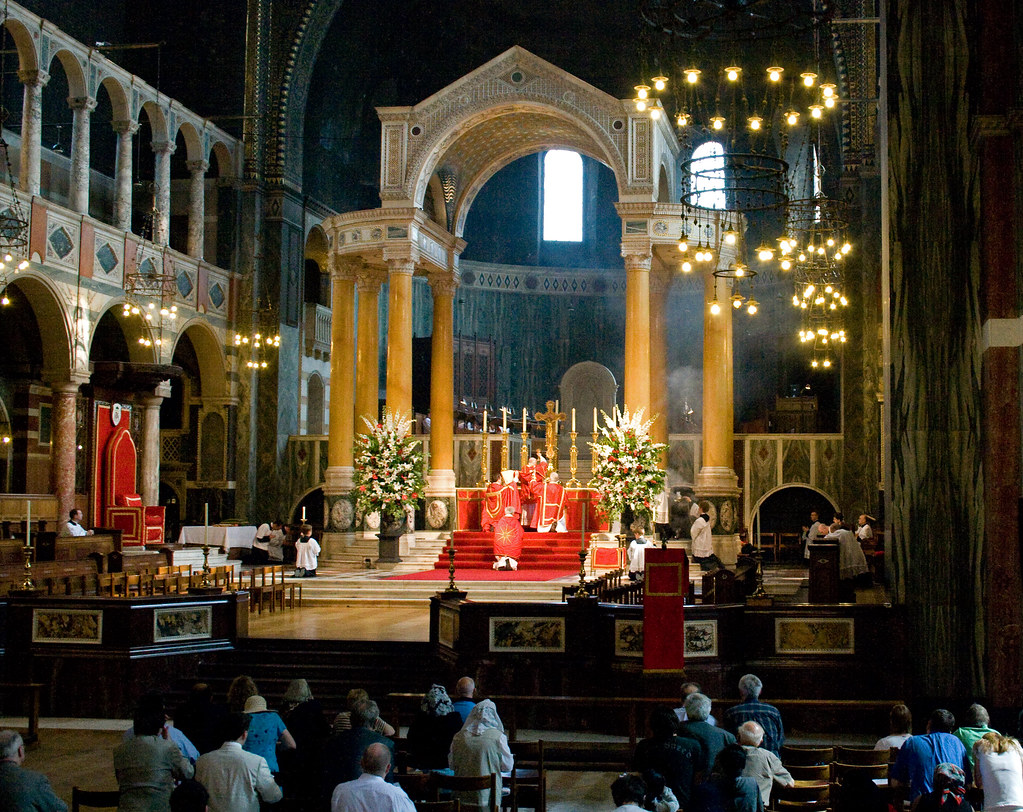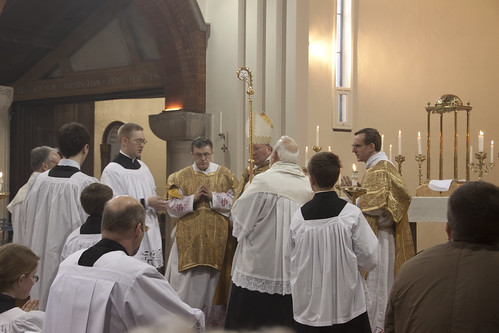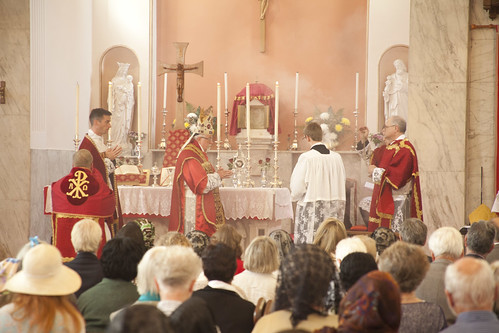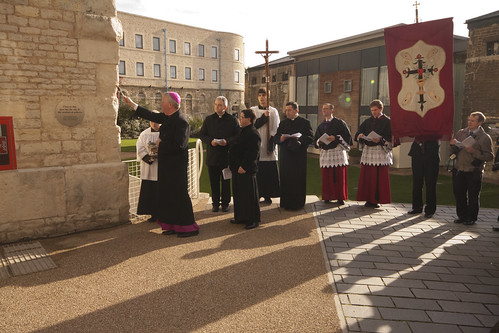In my last post I pointed out that we can no longer assume that the problems posed by religious extremist will be solved for us by the passage of time, with prosperity, education, the spread of democracy and the attractiveness of Enlightenment ideas. One of the implications of the end of the thesis of Inevitable Secularisation is that we can't expect the ideology of secularism, political liberalism, to be more and more widely accepted and to be our great ally in defending the rights of the Church. Here is an example of someone who appears to be doing just that: Lord (David) Alton.
As I have outlined in a speech which rather inadequately has tried to set the scene for the many more detailed interventions which will follow, Article 18 is under threat in almost every corner of the world. As we approach the 800th anniversary of Magna Carta, we should recall that, long before Article 18, it asserted the importance of religious freedom.Societies which deny such freedoms are invariably unhappy societies. Research shows that there is a direct link between economic prosperity and religious freedom. In 1965, Dignitatis Humanae, the Second Vatican Council’s proclamation on religious freedom, said correctly that a society which promotes religious freedom will be enlivened and enriched and one that does not will decay.
Article 18 is a foundational human right—many would say the foundational right—because, while there should be no hierarchy of rights and all rights are interdependent, without the freedom to choose, practise, share without coercion and change your beliefs, what freedom is there? As my noble friend Lord Sacks says, on this question, the fate of the 21st century may turn.
Lord Alton is drawing attention to the terrible persecution of Christians around the world, and doing so in language which their Lordships, with a bit of luck, should be able to understand, but I'm going to criticise at least this peroration because it is wrong.
First off, don't you love the reference to the Magna Carta? Oh yes, Article 18 was well entrenched in English law back in 1215. The Albigensian Crusade was going on in France at the time, accompanied by the young Simon de Montfort, a later champion of the barons' rights. Now that's the kind of religious liberty we can all believe in. What the Magna Carta actually upheld was the freedom of the Catholic Church, which is not the same thing.
To confuse the two seems amazing, but this confusion lies at the heart of the problem. Yes, we Catholics demand, and have always demanded, the liberty of the Church. It doesn't follow that we demand, or indeed permit, the liberty of heretical, schismatic, sectarian, or idolatrous groups. How would anyone imagine that wanting the liberty of the Church implies that we want liberty for these others, any more than those who want liberty in general for good people doing innocent things should want liberty for criminals committing crimes?
The answer is that Catholics in non-Catholic countries naturally have to appeal to general principles which could be accepted by non-Catholic states, and they have, in the last couple of centuries, increasingly seized on the notion of 'religious liberty', an idea which developed in England, Prussia, and then America because of the failure of the biggest sect in each place to suppress its rivals in the course of the 17th and 18th centuries. It was a political expedient which, when the philosopher John Locke formulated it, excluded Catholics. It is not a coherent moral principle, and for practical purposes it lacks content. As I keep saying, the notion of what is just is prior to the notion of what is protected by 'religious liberty'. If the state decides that your religious practice is unjust - whether it be forced marriage, female genital mutilation, circumcision, or telling children that fornication is a mortal sin leading to hell - you are toast.
Let's have a look at this famous article 18. Here it is.
Everyone has the right to freedom of thought, conscience and religion; this right includes freedom to change his religion or belief, and freedom, either alone or in community with others and in public or private, to manifest his religion or belief in teaching, practice, worship and observance.
Now, this may seem a silly question, but is is true?
Do Catholic have a right to change their religion? That implies their repudiation of their baptismal promises. They have no such right in canon law. It is neither morally permitted nor are attempts to do this effective. Apostate Catholics do not succeed in escaping the obligations implied by their baptismal promises. (It makes no difference if they were baptised as infants or adults.) For a couple of decades the Church experimented with the rule that allowed Catholics to contract valid marriages without reference to the Church, if they first formally defected from the Church, making possible, in this respect at least, a mechanism of defection which actually made a difference. A few years ago this experiment was discontinued. As Homer Simpson memorably expressed it, Once you go Vatican, you can't go back again.
But the Church doesn't actually punish apostasy? Yes, she does. For practical purposes the marriage rules impose a heavy penalty on apostates. A Catholic who apostasises and wants nothing more to do with the Church is prevented from contracting a valid marriage: this is very serious. Even more explicitly, Canon Law - yes, I'm talking about the 1983 Code currently in force - makes provision for penalties for heretics, such as deprivation from office. This actually happened to Hans Kung. Was this contrary to Dignitatis Humanae? Of course not.
I'm all for making use of premises accepted by one's opponents, but this becomes problematic when those premises are actually false.
The other thing Lord Alton and the political class in general need to consider is that, useless as the concept of religious liberty has been in defending the Church from secularists, the idea that it is going to be effective in defending the Church against Islamic zealots plumbs new depths of absurdity. We must become used to the idea that the Islamists are the government, in an increasing number of countries, and a substantial body of opinion in many others. The idea that they will be cowed into adopting a liberal conception of religious liberty by Western influence is, to be blunt, a neo-colonial fantasy. Our gunships just don't have that kind of persuasive force these days.
How we can address, if not resolve, the Islamic challenge, is something I will discuss in the next post.
First off, don't you love the reference to the Magna Carta? Oh yes, Article 18 was well entrenched in English law back in 1215. The Albigensian Crusade was going on in France at the time, accompanied by the young Simon de Montfort, a later champion of the barons' rights. Now that's the kind of religious liberty we can all believe in. What the Magna Carta actually upheld was the freedom of the Catholic Church, which is not the same thing.
To confuse the two seems amazing, but this confusion lies at the heart of the problem. Yes, we Catholics demand, and have always demanded, the liberty of the Church. It doesn't follow that we demand, or indeed permit, the liberty of heretical, schismatic, sectarian, or idolatrous groups. How would anyone imagine that wanting the liberty of the Church implies that we want liberty for these others, any more than those who want liberty in general for good people doing innocent things should want liberty for criminals committing crimes?
The answer is that Catholics in non-Catholic countries naturally have to appeal to general principles which could be accepted by non-Catholic states, and they have, in the last couple of centuries, increasingly seized on the notion of 'religious liberty', an idea which developed in England, Prussia, and then America because of the failure of the biggest sect in each place to suppress its rivals in the course of the 17th and 18th centuries. It was a political expedient which, when the philosopher John Locke formulated it, excluded Catholics. It is not a coherent moral principle, and for practical purposes it lacks content. As I keep saying, the notion of what is just is prior to the notion of what is protected by 'religious liberty'. If the state decides that your religious practice is unjust - whether it be forced marriage, female genital mutilation, circumcision, or telling children that fornication is a mortal sin leading to hell - you are toast.
Let's have a look at this famous article 18. Here it is.
Everyone has the right to freedom of thought, conscience and religion; this right includes freedom to change his religion or belief, and freedom, either alone or in community with others and in public or private, to manifest his religion or belief in teaching, practice, worship and observance.
Now, this may seem a silly question, but is is true?
Do Catholic have a right to change their religion? That implies their repudiation of their baptismal promises. They have no such right in canon law. It is neither morally permitted nor are attempts to do this effective. Apostate Catholics do not succeed in escaping the obligations implied by their baptismal promises. (It makes no difference if they were baptised as infants or adults.) For a couple of decades the Church experimented with the rule that allowed Catholics to contract valid marriages without reference to the Church, if they first formally defected from the Church, making possible, in this respect at least, a mechanism of defection which actually made a difference. A few years ago this experiment was discontinued. As Homer Simpson memorably expressed it, Once you go Vatican, you can't go back again.
But the Church doesn't actually punish apostasy? Yes, she does. For practical purposes the marriage rules impose a heavy penalty on apostates. A Catholic who apostasises and wants nothing more to do with the Church is prevented from contracting a valid marriage: this is very serious. Even more explicitly, Canon Law - yes, I'm talking about the 1983 Code currently in force - makes provision for penalties for heretics, such as deprivation from office. This actually happened to Hans Kung. Was this contrary to Dignitatis Humanae? Of course not.
I'm all for making use of premises accepted by one's opponents, but this becomes problematic when those premises are actually false.
The other thing Lord Alton and the political class in general need to consider is that, useless as the concept of religious liberty has been in defending the Church from secularists, the idea that it is going to be effective in defending the Church against Islamic zealots plumbs new depths of absurdity. We must become used to the idea that the Islamists are the government, in an increasing number of countries, and a substantial body of opinion in many others. The idea that they will be cowed into adopting a liberal conception of religious liberty by Western influence is, to be blunt, a neo-colonial fantasy. Our gunships just don't have that kind of persuasive force these days.
How we can address, if not resolve, the Islamic challenge, is something I will discuss in the next post.
Support the work of the LMS by becoming an 'Anniversary Supporter'.
